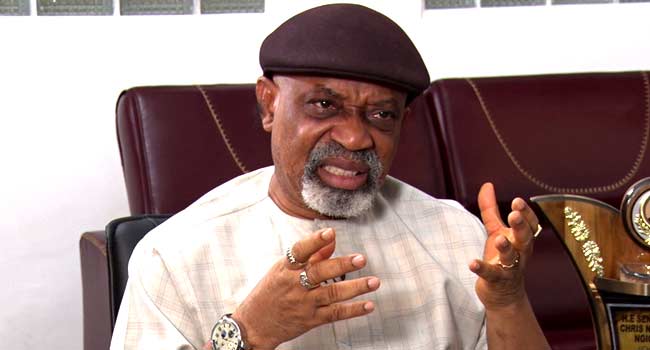At the recently concluded national leadership retreat of the Nigeria Labour Congress (NLC), in Enugu, doubts were cleared with respect payment of N30,000 mimimum wage.
What became clear from discussions at the retreat was that labour knew ahead of time that state governments would prove a hard nut to crack. It was, therefore, not a surprise that chairmen of the NLC state councils and their executives were part of the retreat.
State councils of the NLC and other labour centres, including Trade Union Congress (TUC) play a critical role in the mobilisation of affiliate unions and civil society allies of labour for participation in strikes.
For the leadership of the NLC, the retreat was not only to encourage workers to adapt to new skills thrown up by technological advancement, in order to stay relevant at work places, it was also to build capacities of labour leaders and state councils to organise and negotiate.
It couldn’t, therefore, have come as a shock to labour that state governors, last week, restated their unwillingness to stick with the agreement reached between the Federal Government and labour on the new wage. For the NLC, it was a retreat to arm the state councils ahead of next week’s commencement of negotiation with state governments.
“State councils of the NLC are hereby directed to offer leadership and work harmoniously with the Trade Union Congress (TUC) and Joint National Public Service Negotiation Council (JNPSNC) and all unions to ensure effective implementation of the new national minimum wage and the consequential salary adjustment that must be reached through a process of collective bargaining,” said Ayuba Wabba, president of the NLC.
Asides the N30,000 minimum to be paid to the least of the worker in the public service, both parties also agreed on 23.2 percentage increase for workers at grade level 07; 20 percent for those at grade level 08; 19 percent for workers at grade level 09; 16 percent for those at levels 10 to 14; and 14 percent for workers at grade levels 15 to 17.
But state the governors are not comfortable with this. To them, this is not binding on them. According to Kayode Fayemi, governor of Ekiti and chairman of Nigerian Government Forum (NGF), the crux of this disagreement is the ability of states to pay.
“As far as we are concerned, the best that the governors can do will be to stick to what states will agree to. The federal executive council does not determine what happens in the states. Each state has an executive council which is the highest decision-making organ in the state.
“As far as we are concerned, the states were part of the tripartite discussion and agreed to the N30,000 minimum wage. States also know there will be consequential adjustments, but that will be determined by what happens on the state by state basis because there are different numbers of workers at states.
There are different issues at the state level. Every state has its own trade unions and joint negotiations committee and they will undertake discussions with their state governments,” Fayemi said.
Recent statistics from the Fiscal Responsibility Commission (FRC) showed that most of the Nigerian 36 states are living in a borrowed time due to huge debts.
According to FRC report, the states have a combined debt in excess of N2.39 trillion as at 2017, a 53.31 percent deficit. The FRC’s report had further revealed that by December 2017, the states spent about N359.32 billion or17.12 percent of their combined statutory revenues to service debts. All except four- Anambra, Katsina, Sokoto and Yobe States- had debts exceeding their revenues by 100 percent.
In its 2017 Annual States Viability Index, the Economic Confidential also rated 17 states in Nigeria as technical insolvent as their internally generated revenues (IGRs) were far below 10 percent of their receipts from the federation account.
But reacting to the governors’ position, Emmanuel Ugboaja, a lawyer and general secretary of the NLC warned the state governments against playing to the gallery.
According to Ugboaja, no state could discard the fact that a minimum wage of N30,000 would be at the centre of every negotiation.
“Everybody will negotiate differently based on the state economy but what is sacrosanct is the minimum wage of N30,000 and how that will be adjusted across the board is the function of collective bargaining between the workforce and government,” he said.
Similarly, Musa Lawal, the secretary general of the TUC, said that the state governments were represented in the committee that agreed to minimum wage, and therefore cannot refuse to pay.
“They cannot come around to deny it. They will be courting the anger of the organised labour movement,” Lawal, a lawyer, said.


